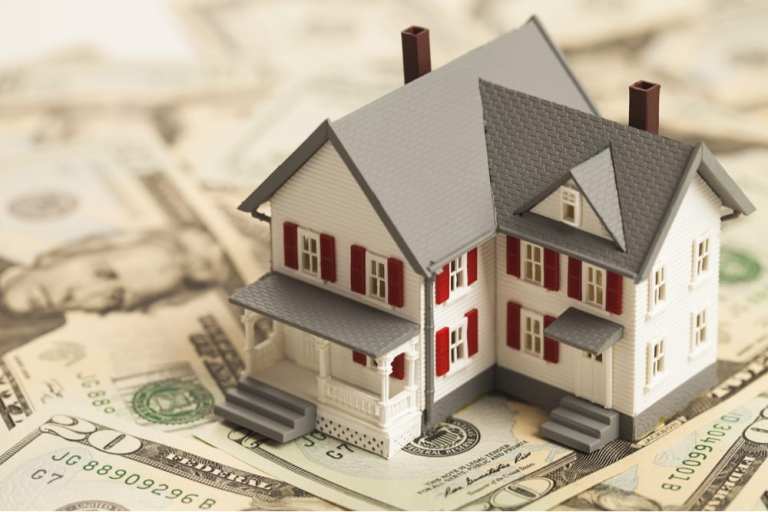NOAH CEO: How A New Twist On Home Equity Helps Homeowners Bridge The Cash Crunch

As the economy has more or less ground to a halt over the last several weeks, time has become harrowing for homeowners who face frozen income streams and continuing mortgage payments due to the coronavirus pandemic.
It’s also confusing at times as options for homeowners looking to stay afloat and in their residences during this unexpected and difficult economic downturn can be a bit complicated to untangle.
The CARES Act, for example, allows mortgagees with federally-backed home loans to skip payments for up to one year, but it doesn’t specify rules for repayment after the year is through. That has left borrowers complaining of massive balloon payments of all delayed payments scheduled to hit them at once at the end of the year.
The Federal Reserve has cut interest rates to record lows, kicking off a wave of mortgage refinancing applications, which JPMorgan Chase and other big banks have responded to by hiking credit requirements for mortgage borrowers.
But one player’s choice to retreat from the field is another’s opportunity to gain ground, Noah Founder Sahil Gupta told Karen Webster in a recent conversation. For all of the pain and uncertainty the coronavirus has injected into the economy, he noted, it has also turned out to be a chance for Noah to reach a bigger customer base with its novel approach to tapping home equity to free up a new source of cash for homeowners.
Refiguring Refinancing
Noah, Gupta noted, is not a lender — although it is often mistaken for one because its process includes many of the same things that lenders are historically known for doing when extending credit. The company checks FICO scores, employment history, income levels, asset counts, etc.
What happens next however, is very different. Once the assessment is done, an online process that takes about 90 seconds, produces an offer for a payment that is based on those criteria, the outstanding mortgage and the value of the home. That payment is actually an equity stake that Noah takes in that home. The payback term is 10 years, which tends to be about the average length of time that a homeowner stays in the house before selling. Repayment of that investment is that equity plus a percent of any appreciation (or depreciation) in the value of the home over and above that payment.
“We are sharing in either upside or downside between today’s valuation and the valuation of the future,” Gupta explained, noting that on average, Noah’s typical appreciation share comes in at roughly 30 percent.
On average, Gupta said, consumers borrow about $100,000 in equity — and the firm’s model expects that the average term of a relationship will be for a five- to seven-year term, although 10 is the upper limit. Gupta said that what has been interesting to note thus far is how many repayments are made years earlier than expected — with payments going out in 2017 and 2018 already coming back in repaid.
And the models, he noted, are getting quite an educational experience these days as the COVID-19 pandemic has both increased interest in the platform and changed the profile of who is coming to cash out the equity they have in their homes.
In many ways, COVID-19 has exposed the massive vulnerabilities in a globally connected economy, all at once and nearly overnight. Things that were flowing seamless are now chaotic, and what happens next is going to be very interesting to see for all of us, he said.
Redefining Normal
Gupta said that consumer interest in Noah has spiked in these early days of the COVID-19 pandemic. Consumers are being proactive and pulling out equity funds now so they can keep paying their mortgage uninterrupted, trying hard to save money and better deploy their cash resources.
No one, he said, wants to rewind and repeat the 2008 financial crisis — a time in which consumers who didn’t make mortgage payments found their homes seized and then locked up in foreclosure proceedings.
Noah, he said, is seeing, perhaps surprisingly, an uptick in prime and super-prime high-income borrowers looking to leverage an alternate form of capital to improve their cash flow position in the most financially advantageous way.
Gupta said he anticipates demand from this sector and others — for holistic, more customized and tailored financial services products — will outlast the current crisis, even if it proves to be a catalyst right now.
The current crisis will pass, albeit more slowly than some had initially forecasted, he said. Some segments will likely have a particularly long road to walk back, like travel, and could recover for the next three years or more.
But housing, he said he believes, will fare quite a bit better during this economic downturn than it did during the Great Recession, which itself was tipped off by a crisis in the housing market and had a recovery period of over five years. This time around he said he believes things will be back to normal in the segment within a year, and what Noah is focused on is helping customers get to the other side of that recovery, while protecting their biggest asset: their homes.
Customers, he noted, are highly motivated to do so. What they need is a helping hand, which Noah aims to offer them with a more accessible alternative to traditional refinancing.
“I believe in the American consumer and the American dream of home ownership, and it’s important to us that people can take care of themselves and their homes,” he said. “We think if we can extend that help at the right time in the right ways, we can both support and strengthen the market as a whole.”